Papers by hatice zehra büyüktavşan
DergiPark (Istanbul University), Feb 5, 2024
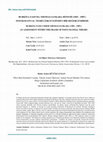
After the Second World War, the balance of power in the international arena changed and many Asia... more After the Second World War, the balance of power in the international arena changed and many Asian, African and American countries that were colonies in the past began to gain their independence one by one. At the end of this process, with the end of colonialism, Postcolonial Theory emerged and tried to question the legacy left by colonialism in colonized countries. Burkina Faso, formerly known as Upper Volta, which gained its independence from France in 1960, is one of these countries. Thomas Sankara, who was in power between 1983-1987, tried to erase, with a Postcolonial attitude, the traces of colonial France and build an independent national identity and culture in Burkina Faso, which had been exploited and classified as lower rank, using his own tools with limited institutional capacity and few resources. Throughout this process, Sankara made numerous reforms in the country, especially in areas such as economy, culture, health, education, infrastructure and military, in order for the country to develop and become a self-sufficient independent nation. Within the scope of this study, general information about Burkina Faso was mentioned and then brief information about the theoretical framework of the study and Thomas Sankara was given. Afterwards, in the perspective of Postcolonial Theory, the 1983 coup, the Thomas Sankara power (1983-1987) and the way to the 1987 coup were discussed in general terms. In the light of this study, it has also been tried to investigate Sankara's efforts to separate from the colonial France period by using Postcolonial thought. With this study, it is aimed to contribute to the literature by considering the situation of the inadequacy of the effort at the end of the process, despite the attempts to develop and liberate the colonized country in every field after the colonist lost his influence on it.
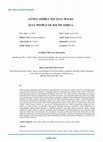
from the past to the present. One of these tribes is the ethnic group of Zulu natives, who live d... more from the past to the present. One of these tribes is the ethnic group of Zulu natives, who live densely in today's KwaZulu-Natal region of South Africa and still lead a life depending on their traditions. In this study, the history of the Zulu Tribe, the most important kings of the Shaka Zulu period and the successful Zulu Wars, which are spoken even today, were tried to be shed light on, ceremonies and mythological features were studied. Afterwards, the social structure, justice system, administrative structure, military system and medical treatment process of the Zulu Tribe were discussed in general terms. Zulu natives, who have lived a unique life in Africa with their own methods and traditions, are a reflection of the essence of the African continent. As in all colonized African societies, the lifestyles and traditions of the Zulu people were tried to be erased by the colonists. However, despite all these negativities, the Zulus managed to become a strong community of Africa, which struggled with all its might against the slavery system and de-identification. Shaka Zulu, the powerful emperor of the Zulus, who played a large part in this success, should not be forgotten. Shaka Zulu, the most important symbol of this struggle, has left a strong enough community structure to keep his people together even after his death and has greatly benefited the preservation of his people's true self. Based on these assumptions, in the article, the Zulu people were analyzed with a descriptive and explanatory method in general terms.
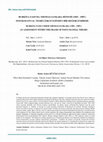
Africania, Jul 30, 2021
After the Second World War, the balance of power in the international arena changed and many Asia... more After the Second World War, the balance of power in the international arena changed and many Asian, African and American countries that were colonies in the past began to gain their independence one by one. At the end of this process, with the end of colonialism, Postcolonial Theory emerged and tried to question the legacy left by colonialism in colonized countries. Burkina Faso, formerly known as Upper Volta, which gained its independence from France in 1960, is one of these countries. Thomas Sankara, who was in power between 1983-1987, tried to erase, with a Postcolonial attitude, the traces of colonial France and build an independent national identity and culture in Burkina Faso, which had been exploited and classified as lower rank, using his own tools with limited institutional capacity and few resources. Throughout this process, Sankara made numerous reforms in the country, especially in areas such as economy, culture, health, education, infrastructure and military, in order for the country to develop and become a self-sufficient independent nation. Within the scope of this study, general information about Burkina Faso was mentioned and then brief information about the theoretical framework of the study and Thomas Sankara was given. Afterwards, in the perspective of Postcolonial Theory, the 1983 coup, the Thomas Sankara power (1983-1987) and the way to the 1987 coup were discussed in general terms. In the light of this study, it has also been tried to investigate Sankara's efforts to separate from the colonial France period by using Postcolonial thought. With this study, it is aimed to contribute to the literature by considering the situation of the inadequacy of the effort at the end of the process, despite the attempts to develop and liberate the colonized country in every field after the colonist lost his influence on it.



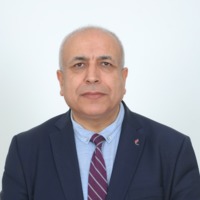
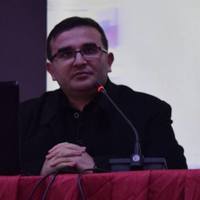





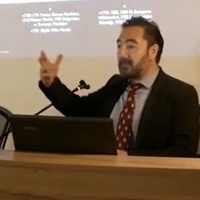
Uploads
Papers by hatice zehra büyüktavşan